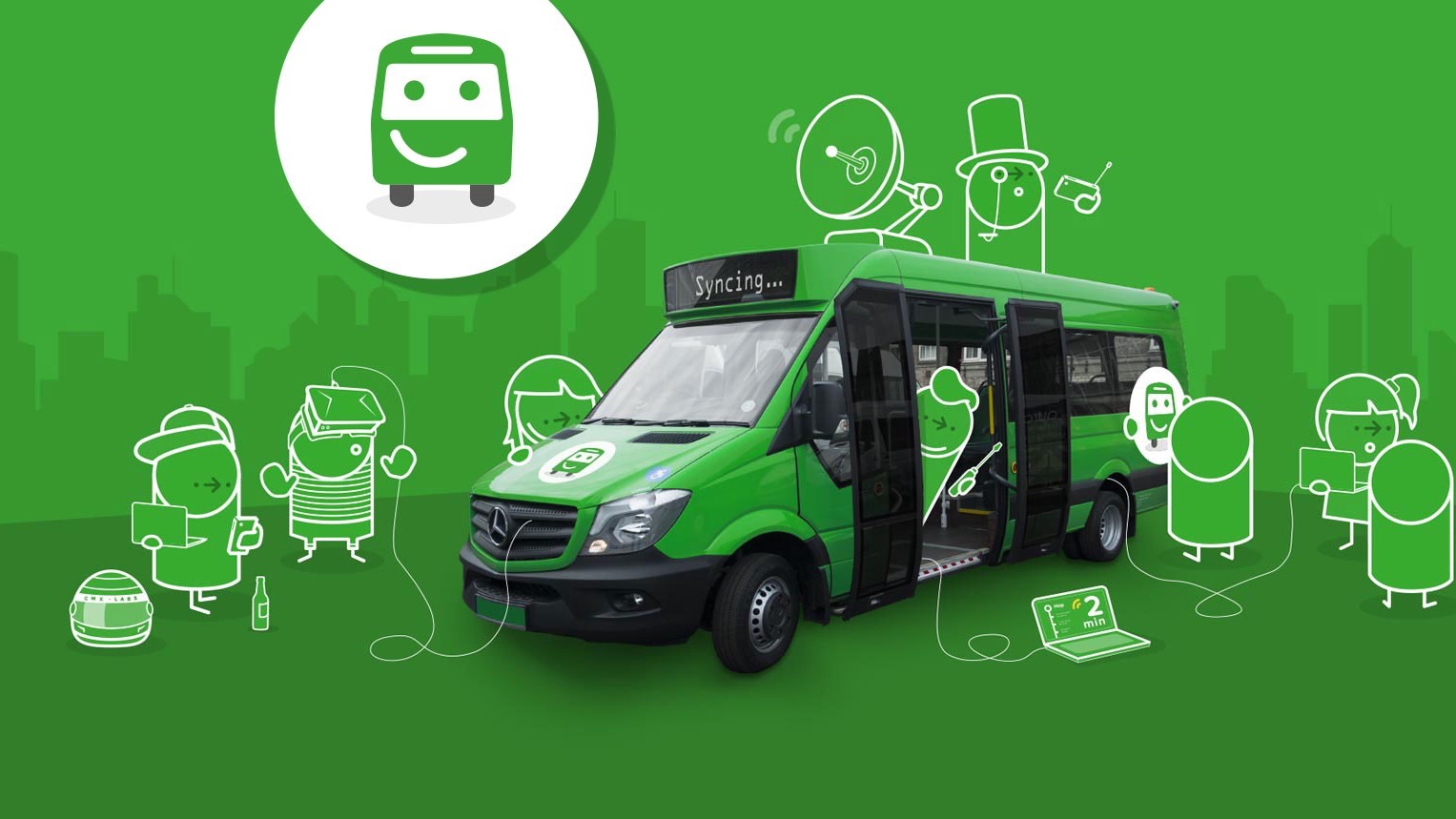

Citymapper is an app that launched 2012, using data to help users track city buses. But now the company behind it wants to go from merely tracking buses to operating them itself.
Over the next two days, Citymapper will operate a “popup” bus service in London, on a circular route around the British capital’s core. Called Smartbus, it uses Mercedes-Benz Sprinter-based minibuses instead of conventional buses, integrated with Citymapper’s app. The company believes all of the data it has accrued on bus usage can help it improve on this form of public transportation.
The Citymapper Smartbus operates more or less like a conventional bus service, using a fixed route and stopping at bus stops. But Citymapper has added an extra dose of tech, including tracking software that lets passengers know exactly where the bus is—whether they’re standing at a bus stop viewing Citymapper’s app or watching the buses’ integrated display screens.
Citymapper also displays estimated arrival times at bus stops, and its software includes some tools for drivers, like tracking of passenger numbers and traffic information. The buses themselves are equipped with USB ports under every seat and, while they can’t rival the passenger capacity of a London double decker, Citymapper says its minibuses make more sense in a crowded city.
The Smartbus “popup” is being run with the blessing of Transport for London (TfL), the city’s transportation agency. Data made public by TfL also forms the basis for Citymapper’s app. However, for the Smartbus concept to be applied on a larger scale, TfL would need to adapt Citymapper’s tech to its own bus service, or grant Citymapper a license to operate as a private bus service. Right now, it doesn’t seem likely that TfL will do either.
Bus-like mobility services are yet another offshoot of the ride-sharing boom. City mapper’s Smartbus may be unique in that it really does operate like a conventional bus, just with more integrated software and perks. Ford’s Dynamic Shuttle, for example, chooses its route based on the locations of riders hailing it. Elon Musk proposed a similar kind of service for Tesla last year, although he now seems to be focusing more on conventional ride-sharing using autonomous cars.
Ride sharing has become a hit in part because it offers the flexibility of anytime travel between any two points, something buses and other forms of public transportation can’t match. But services that operate more like buses erode that advantage. Which begs the question: Why not just take a regular bus?